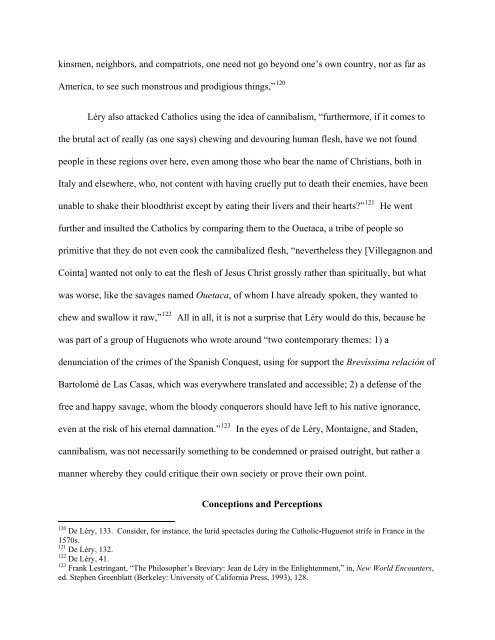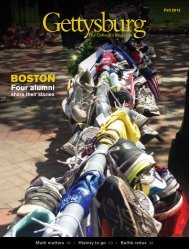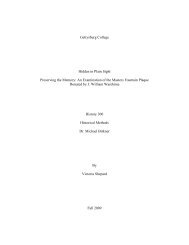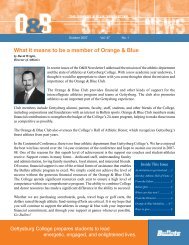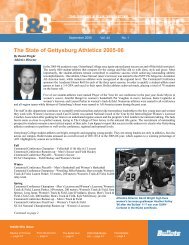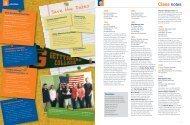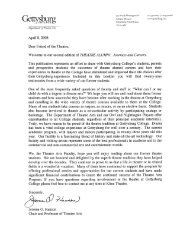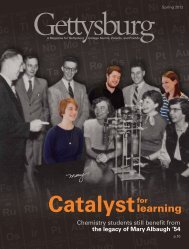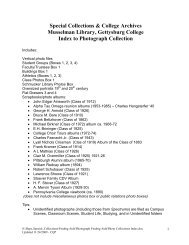Sweet Tooth for Empire: Sugar and the British Atlantic World
Sweet Tooth for Empire: Sugar and the British Atlantic World
Sweet Tooth for Empire: Sugar and the British Atlantic World
You also want an ePaper? Increase the reach of your titles
YUMPU automatically turns print PDFs into web optimized ePapers that Google loves.
kinsmen, neighbors, <strong>and</strong> compatriots, one need not go beyond one’s own country, nor as far as<br />
America, to see such monstrous <strong>and</strong> prodigious things,” 120<br />
Léry also attacked Catholics using <strong>the</strong> idea of cannibalism, “fur<strong>the</strong>rmore, if it comes to<br />
<strong>the</strong> brutal act of really (as one says) chewing <strong>and</strong> devouring human flesh, have we not found<br />
people in <strong>the</strong>se regions over here, even among those who bear <strong>the</strong> name of Christians, both in<br />
Italy <strong>and</strong> elsewhere, who, not content with having cruelly put to death <strong>the</strong>ir enemies, have been<br />
unable to shake <strong>the</strong>ir bloodthrist except by eating <strong>the</strong>ir livers <strong>and</strong> <strong>the</strong>ir hearts?” 121 He went<br />
fur<strong>the</strong>r <strong>and</strong> insulted <strong>the</strong> Catholics by comparing <strong>the</strong>m to <strong>the</strong> Ouetaca, a tribe of people so<br />
primitive that <strong>the</strong>y do not even cook <strong>the</strong> cannibalized flesh, “never<strong>the</strong>less <strong>the</strong>y [Villegagnon <strong>and</strong><br />
Cointa] wanted not only to eat <strong>the</strong> flesh of Jesus Christ grossly ra<strong>the</strong>r than spiritually, but what<br />
was worse, like <strong>the</strong> savages named Ouetaca, of whom I have already spoken, <strong>the</strong>y wanted to<br />
chew <strong>and</strong> swallow it raw,” 122 All in all, it is not a surprise that Léry would do this, because he<br />
was part of a group of Huguenots who wrote around “two contemporary <strong>the</strong>mes: 1) a<br />
denunciation of <strong>the</strong> crimes of <strong>the</strong> Spanish Conquest, using <strong>for</strong> support <strong>the</strong> Brevíssima relación of<br />
Bartolomé de Las Casas, which was everywhere translated <strong>and</strong> accessible; 2) a defense of <strong>the</strong><br />
free <strong>and</strong> happy savage, whom <strong>the</strong> bloody conquerors should have left to his native ignorance,<br />
even at <strong>the</strong> risk of his eternal damnation.” 123 In <strong>the</strong> eyes of de Léry, Montaigne, <strong>and</strong> Staden,<br />
cannibalism, was not necessarily something to be condemned or praised outright, but ra<strong>the</strong>r a<br />
manner whereby <strong>the</strong>y could critique <strong>the</strong>ir own society or prove <strong>the</strong>ir own point.<br />
Conceptions <strong>and</strong> Perceptions<br />
120<br />
De Léry, 133. Consider, <strong>for</strong> instance, <strong>the</strong> lurid spectacles during <strong>the</strong> Catholic-Huguenot strife in France in <strong>the</strong><br />
1570s.<br />
121<br />
De Léry, 132.<br />
122<br />
De Léry, 41.<br />
123<br />
Frank Lestringant, “The Philosopher’s Breviary: Jean de Léry in <strong>the</strong> Enlightenment,” in, New <strong>World</strong> Encounters,<br />
ed. Stephen Greenblatt (Berkeley: University of Cali<strong>for</strong>nia Press, 1993), 128.


